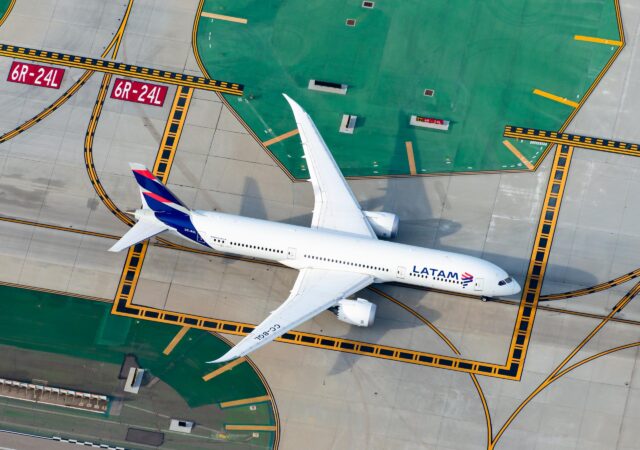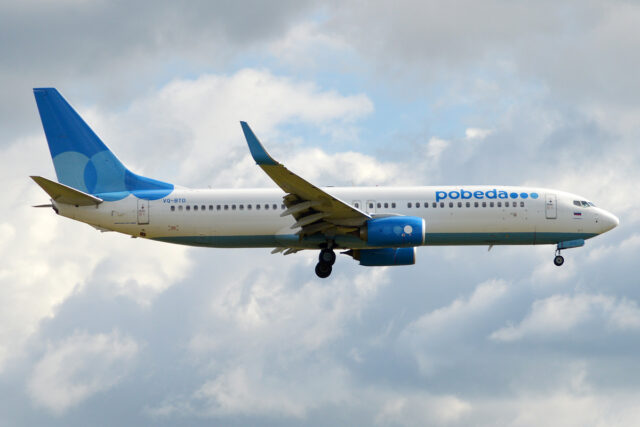NATO allies close airspace along border with Russia following drone flights over Poland
Latvia has become the latest NATO allied country to announce the imposition of airspace closures along its border with Russia and Belarus.
The move comes in response to several…

September 11, 2025
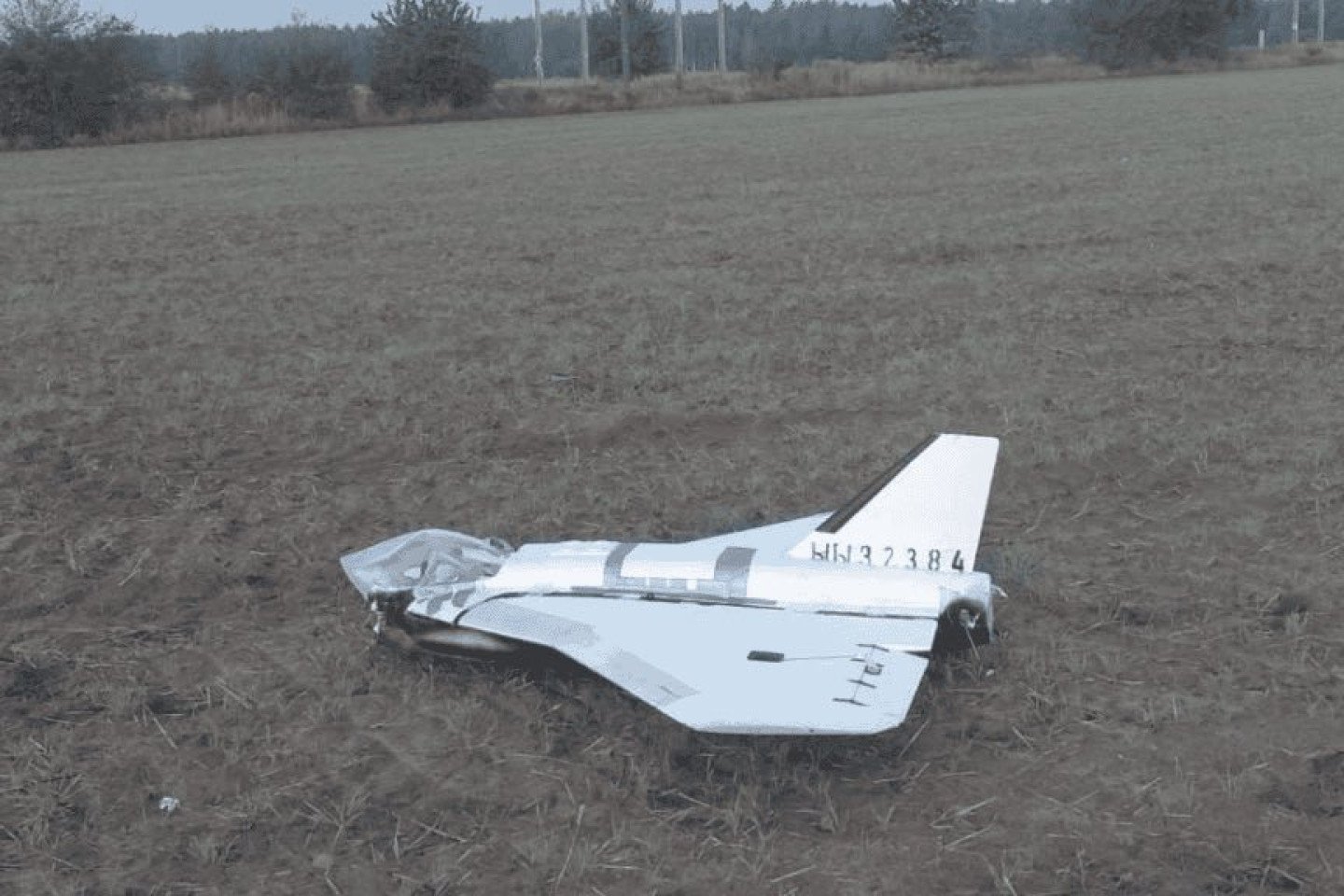
Latvia has become the latest NATO allied country to announce the imposition of airspace closures along its border with Russia and Belarus.
The move comes in response to several Russian drones that entered Polish airspace on the night of 9 and 10 September.
As announced at a press conference given by the Latvian defence minister Andris Sprūds on 11 September, Latvia’s airspace will be restricted to certain aircraft along a 32-mile (50 km) section of its border with both Russia and Belarus and will extend to a height of 6,000 metres (19,800ft).
This won’t affect commercial aircraft, which fly much higher, but will put Latvia in a position to confront any low-level flying objects that enter the airspace.
The restriction will be in place from 18:00 local time on 11 September until “at least” 18 September. Sprūds added that there was also the possibility that the closures could be extended if circumstances require it.
Latvia reacts to the violation of Polish airspace by Russia
The minister made his statement as part of the fallout following the Russian drone strike on Kyiv, Ukraine, on the night of 9 and 10 September.
It has been widely reported that at least 19 Russian drones entered Polish airspace from the east, via Belarus. Poland and NATO scrambled fighter jets and deployed air defence systems. An unconfirmed number of drones were shot down.
Sprūds reminded those present that this action represented a “blatant violation of NATO airspace.” Latvia, as one of Russia’s closest neighbours, must act in light of this threat, he said.
“Russian drones in NATO airspace are a wake-up call, and we must do everything possible to prevent an escalation of drone attacks,” Sprūds commented.
🇷🇺🇺🇦 Images and a video of two different downed Russian propeller-driven Gerbera decoy drones—the images are notably from a Gerbera that crashed in Poland. The Gebera decoy drone is made of plywood and foam—refer to the images—and appears to be primarily employed in an unarmed… pic.twitter.com/t1e5IZPoqU
— Shahryar Pasandideh (@shahpas) September 8, 2025
During his comments, the minister said that while there was no overt threat against Latvia, the measures were necessary as a matter of preserving national security.
As reported by LSM+, with the airspace closure along Latvia’s eastern border, the Baltic country will benefit from significantly more control over its airspace, giving it the ability to see and identify any unauthorised flying objects.
Should any drones (or other aircraft) breach the airspace unauthorised, air defence units of the Latvian National Armed Forces have been briefed to remain on high alert and to take remedial action by shooting down drones of aggressor states if necessary.
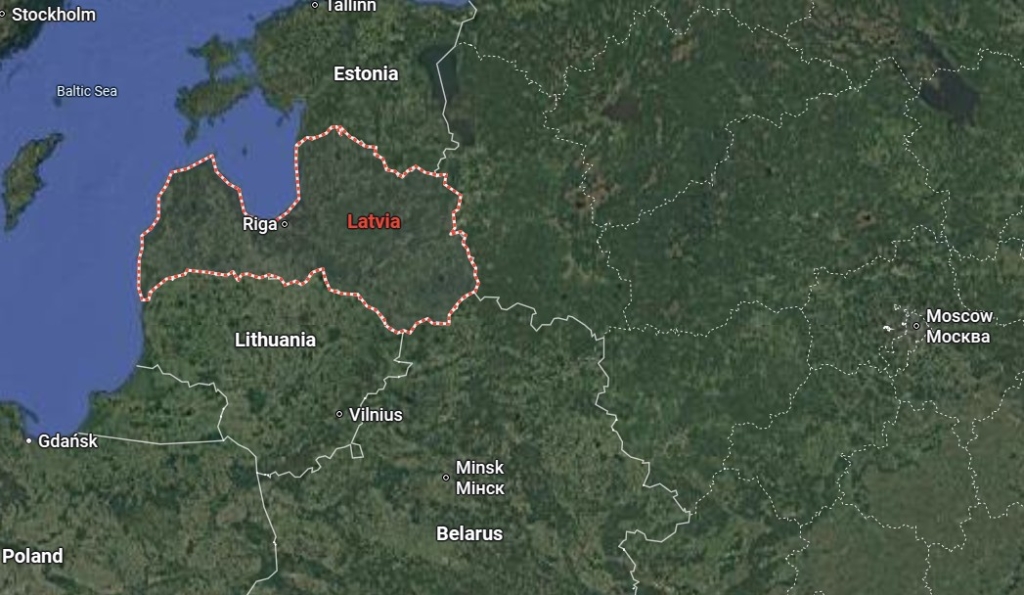
“The closure of the Latvian airspace zone will allow us to fully control the restricted airspace, facilitate the detection of unauthorized flying objects, free up the restricted zone for NATO Baltic Air Policing mission fighter jets and our air defence,” Sprūds said.
Over the past year, amendments have been made to the regulatory enactments that, in cooperation with Latvian Air Traffic Control, allow for the rapid closure of airspace in specific areas should circumstances require such immediate action.
Freeing up vital airspace for national defence
As well as protecting the region of the country on the eastern front, Sprūds also stated that the airspace closures will free up the Latvian airspace in the restricted zone for NATO Baltic Air Patrol Mission interceptors and Latvian air defence systems.
Equally, the move will also allow for increased testing of acoustic airspace surveillance systems, drone and anti-drone simulations, and the deployment and training of additional mobile combat units, explained the minister.
“The National Armed Forces have been implementing an air defence operation in eastern Latvia for a year now. Closing airspace will speed up the response of air defence battle groups to a potential threat,” said the Commander of the Latvian National Armed Forces, Major General Kaspars Pudāns.
“At the same time, previously developed air defence procedures, notification algorithms, and analysis of sensor data will be intensively tested.”
Latvia follows Poland and Lithuania with airspace closures
The Latvian announcement regarding airspace closures came within hours of Poland’s Operational Command issuing a notification of the closure of Polish airspace all along the country’s entire 260-mile border with Belarus.
The Polish airspace was restricted by authorities from late on 10 September and will remain so until at least 9 December, the command said in a statement posted on social media.
🚨 BREAKING: NATO Activates Article 4 After Russian Drone Strike Over Poland.
— Brian Allen (@allenanalysis) September 10, 2025
Polish PM: “This is the closest we’ve been to war since WWII.”
For the first time in NATO’s history, its fighter jets shot down Russian drones directly over a member nation’s territory. pic.twitter.com/6MDZ62POjr
Meanwhile, in August, another of Russia and Belarus’ neighbours, Lithuania, declared a no-fly zone along its 56-mile border with Belarus. The restriction would apply from 14 August until at least 1 October, with the country retaining the option to extend the closure if deemed necessary.
Ministers in Lithuania’s capital, Vilnius, decided to act after two Russian drones (one of which was armed with explosives) crashed on Lithuanian territory, having flown from Belarus.
A drone from Belarus entered Lithuanian airspace and was spotted by Vilnius residents
— Visegrád 24 (@visegrad24) July 28, 2025
Early morning, Vilnius residents reported a drone, likely from Belarus, flying at about 200 meters. Police sent a cellphone alert, warning residents not to approach it.
This is the second… pic.twitter.com/OEUevJFsK3
Also on September 11, ministers from Ukraine, Poland, and Lithuania (part of the so-called ‘Lublin Triangle’) issued a joint statement following the violation of Polish airspace by Russian drones.
It emphasised Ukraine’s readiness to share all available intelligence and operational information with Poland, Lithuania, and other partners to build “an effective early-warning and protection system against Russian missile and drone attacks.”
The three countries stressed the need for better coordination and operational cooperation among the relevant structures of the three states responsible for airspace security.
The statement added that such coordinated actions should aim to prevent the negative consequences of Russia’s provocative actions and, ideally, improve the effectiveness of air defence measures.
The ministers called on partners to urgently strengthen Ukraine’s air defences and support Lithuania and Poland in securing NATO’s and the EU’s eastern flank, noting that only a decisive response can prevent further escalation.
The impact on commercial aviation
While the airspace restrictions don’t affect passenger airliners, drone incursions have already had repercussions for commercial flights.
Several major Polish airports, including Warsaw Chopin, Warsaw Modlin, Rzeszów-Jasionka and Lublin, were forced to suspend operations overnight after the drones entered the airspace.
Warsaw Chopin, the country’s busiest hub, halted flights for around two hours before reopening at 07:30 local time. Other airports gradually resumed operations with the exception of Lublin, which remained shut into the morning.
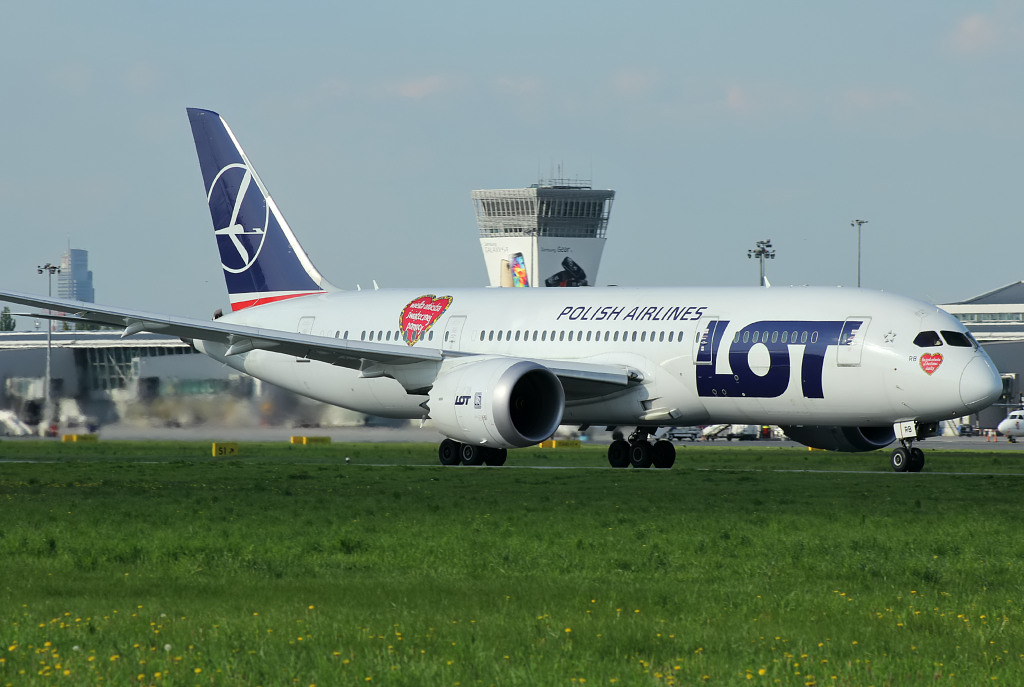
The disruption led to diversions of LOT Polish Airlines flights to airports such as Katowice and Poznań, widespread delays, and cancellations that rippled through the day’s schedules.
Rzeszów’s closure was particularly significant given its dual role in handling both passenger services and aid logistics for Ukraine, underscoring the wider regional implications of even temporary shutdowns.
Wading in on the matter, Ryanair boss Michael O’Leary has warned that the Russia-Ukraine war would be an ongoing issue for all European airlines for years to come, following the drone overflights in Polish airspace.
The airspace breaches led to temporary closures of Warsaw Chopin (WAW) and Modlin (MOD) airports, as well as Rzeszów (RZE) and Lublin (LUZ0 airports in the country’s east.
As reported by Reuters, O’Leary added that air traffic control services all over Europe were significantly impacted on 9/10 September and only 60% of Ryanair’s flights were on time, compared to a normal rate of around 90%.
The airline’s flights from Scandinavia and the Baltic states were particularly impacted, he stated.

“This is going to be an ongoing issue for all airlines and all European citizens for the next number of years,” he said in comments at the company’s annual general meeting.
“I think we expect more disruptions, unless the European, the EU, and the White House, take some firm stick, preferably in the form of sanctions, penal sanctions, on Russia,” O’Leary commented.
“This kind of irritant – Russia playing games with Europe – will continue,” he concluded.
